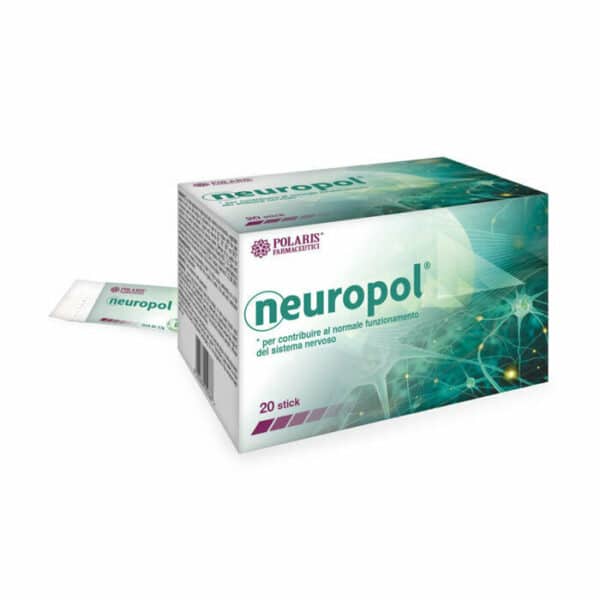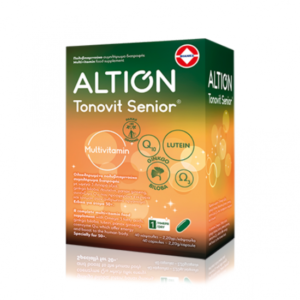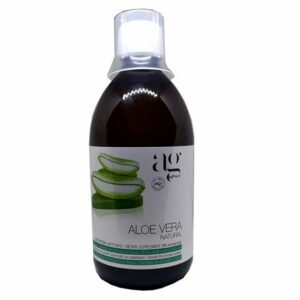
Polaris Neuropol 20 sachets
33,95 € Με Φ.Π.Α
| Weight | 0,35 kg |
|---|---|
| Κατασκευαστής |
Available from 1 to 3 days
Neuropol Dietary Supplement with Alpha Lipoic Acid 600 mg, BORAGO Oil, HARPAGOPHYTUM, Minerals and Vitamins with Antioxidant and Neuroprotective Action.
neuropol is a food supplement containing alpha lipoic acid, vitamins (B 1 , B 2 , B 6 , B 12 , C, D3, E, folic acid), borago oil, harpagophytum,
Zinc and Copper.
- Alpha lipoic acid is a strong antioxidant agent, contributes to the protection of nerve cell membranes, acts as a coenzyme in energy metabolism and exhibits an anti-inflammatory effect.
- Copper and vitamins B 1 , B 2 , B 6 and B 12 contribute to the smooth functioning of the nervous system.
- Borago oil is useful in maintaining the integrity and functionality of cell membranes.
- Vitamins B 2 , C, E, zinc and copper contribute to the protection of cells from oxidative stress.
- Vitamin C contributes to the regeneration of the reduced form of vitamin E.
- Zinc, copper, vitamins C, D, B 6 , B 12 and folic acid contribute to the normal functioning of the immune system.
neuropol ® contributes to the treatment of NEUROPATHIES:
The term neuropathy refers to nerve pathology. Nerves are bundles of nerve fibers that carry information from the central nervous system
in the periphery and vice versa. Various diseases can cause nerve damage, such as diabetes, chronic kidney failure, alcohol, vitamin (B 12 and folate) deficiency, tumors, autoimmune diseases.
Depending on the anatomical distribution of the damage, they are divided into the following categories:
- radiculopathy: affect the root (origin) of the nerve.
- plexopathies: involving the nerve plexuses. The roots of the peripheral nerves form, joining together, a nerve “network” called the plexus.
A damage at the level of this network is the origin of a plexopathy.
- mononeuropathies: involve only one nerve.
- asymmetric polyneuropathies: involve several nerves, even distant ones, which are asymmetrically affected.
- symmetrical polyneuropathies: when more nerves are affected bilaterally (right and left of the body) and symmetrically.
Rizopathy
They are generally caused by nerve root compression, the most common of which is due to a herniated disc. The best-known example is the so-called sciatica (or sciatica in the waist) due to compression of a root at the lumbar level. The patient usually complains of pain that starts in the lumbar region and spreads along the back of the thigh and calf.
Plexopathies
The most affected plexus is the brachial plexus formed by the roots present at the cervical level. Direct trauma to the shoulder (eg motorcycle accident), strains, compressions from tumors are common causes of brachial plexus injuries. Clinically, the patient complains of muscle weakness in some muscles of the affected arm and anesthesia whose distribution varies according to the damaged nerve trunks.
Mononeuropathies
Usually only one nerve is damaged due to compression or trauma. The most common compression mononeuropathy is carpal tunnel syndrome. The median nerve to reach the hand passes through a narrow area in the wrist called the carpal tunnel. Genetic predisposition to a narrower tube, trauma at the level of the wrist, or enlargement of the surrounding tissues (eg, hypothyroidism, acromegaly, pregnancy, obesity) are all conditions that can cause compression of the nerve. The patient complains of less sensitivity and the presence of numbness that occurs especially at night. There compression of the median nerve can cause weakness of certain muscles that allow opposition to the thumb innervated by it. For the diagnosis it is useful to study the functionality of the nerve through an instrumental examination (electroneurography). In some more severe cases it may be useful to resort to surgical decompression of the nerve.
Asymmetric and symmetric polyneuropathies
Polyneuropathies can present with two main types of symptoms.
Α. Weakness or paralysis: muscles innervated by damaged nerves are no longer able to perform their function properly. The patient will notice a weakness that usually occurs in the palms or soles of the feet and then moves up the arm or shin respectively.
Β. Changes in sensation: nerves are able to detect the various stimuli applied to the skin such as touch, cold, heat and pain and transmit information to the nervous system. Nerve damage can cause decreased sensation (called hypoesthesia) as well as pain and numbness in the palms and soles.
Some polyneuropathies may include the presence of disorders such as difficulty urinating, sexual dysfunctions, changes in sweating.
For the use of the product it is recommended to consult your doctor.
Dietary supplements are not intended as a substitute for a balanced diet and a healthy lifestyle.
Gluten Free, Lactose Free.
It is recommended to consume 1-2 sachets (sticks) of the product per day preferably after a meal. You empty the contents of a sachet (stick) into one
glass of water, mix well and consume immediately after preparing the solution.
Do not exceed the recommended dose. The product contains polyols, excessive consumption of which may have laxative effects.
Do not use on children under 3 years of age.




